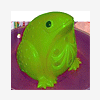-
Welcome to the eG Forums, a service of the eGullet Society for Culinary Arts & Letters. The Society is a 501(c)3 not-for-profit organization dedicated to the advancement of the culinary arts. These advertising-free forums are provided free of charge through donations from Society members. Anyone may read the forums, but to post you must create a free account.
Sulfite levels in wine
-
Similar Content
-
- 25 replies
- 2,565 views
-
- 145 replies
- 30,660 views
-
- 6 replies
- 2,455 views
-
- 7 replies
- 1,163 views
-
- 2 replies
- 643 views
-
-
Recently Browsing 0 members
- No registered users viewing this page.






Recommended Posts